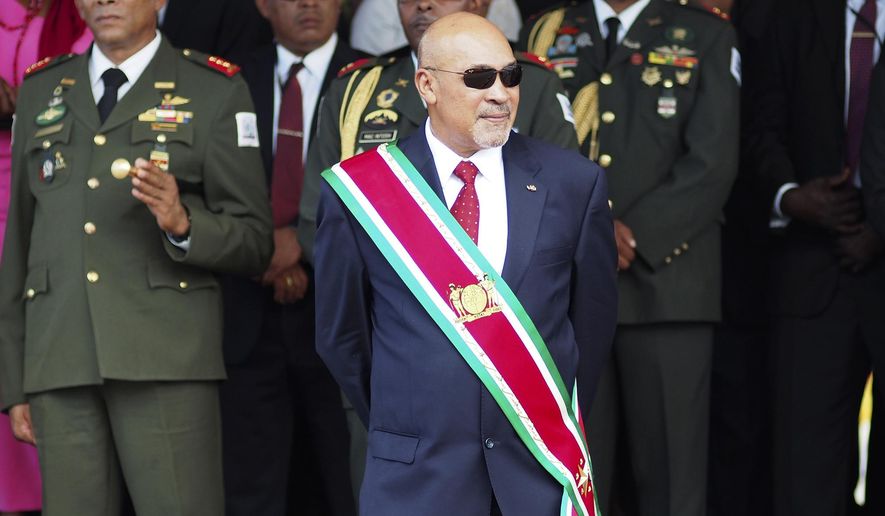PARAMARIBO, Suriname (AP) - Four Surinamese parties have formed an alliance that would put them close to being able to choose the country’s next president following elections that may have ended the rule of President Desi Bouterse.
While the Independent Electoral Bureau said it has counted 99.5 percent of the votes from the May 25 election, officials had not formally published the results as of Sundayand Bouterse - who faces criminal convictions both at home and in the Netherlands - had not conceded defeat.
The United Reform Party, known as the VHP, appeared to have won 20 seats in the 51-member legislature, while Bouterse’s Bouterse’s National Democratic Party won 16.
The VHP announced Saturday that it had reached a cooperation agreement with three smaller parties that would give its bloc 33 seats - one short of the two-thirds majority needed to elect the next president of the small country on the northeastern shoulder of South America.
Party leader Chandrikapersad “Chan” Santokhi, now the favorite to become Suriname´s next president, declined to say if he was negotiating with another party, currently alligned with Bouterse, that will hold two seats.
“We cannot wait any longer,” Santokhi said. “The crisis in the country is huge and the people of Suriname expect us to take action.”
He has proposed to bolster a struggling economy by boosting industry and agriculture and by appealing for investment by the nearly 400,000 people of Surinamese origin in the Netherlands.
The country of about 600,000 people also is hoping that newly discovered oil reserves will come on line within about five years.
Santokhi also tried to reassure Bouterse supporters. “To get out of the crisis we also need the people who didn’t vote for us,” Santokhi said. “We’re going to work with you as well.”
Santokhi, 61, is a former police commissioner and former minister of justice and police and he oversaw the start of a long legal process that led to Bouterse(s murder conviction last year for the deaths of 15 people who opposed the military regime he led from 1980 to 1987. He returned to power in democratic elections in 2010.
While the court sentenced Bouterse - now 74 - to 20 years in prison, it did not order his arrest and he is appealing the verdict. As president of the country, Mr. Bouterse enjoys immunity, which will disappear if he leaves office. Bouterse also has been convicted in absentia in the Netherlands of drug trafficking, which he denies.
Asked if he would put Bouterse in prison, Santokhi said, “It is not up to the government to arrest people. That is for the judiciary to decide. We have to make sure that the judiciary can do its job freely.”




Please read our comment policy before commenting.